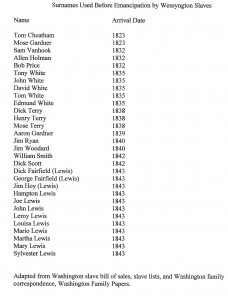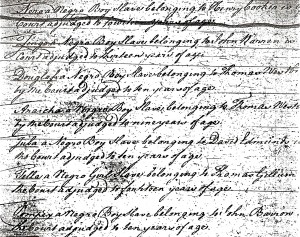In 1831, Nat Turner led the largest slave rebellion in the history of the United States. Turner, born in 1800 in Jerusalem, Southampton County, Virginia. Wessyngton Plantation’s founder Joseph Washington lived in Southampton County before he came to Tennessee. Many of the slaves on Wessyngton Plantation were brought by Joseph to Tennessee.
In Virginia, Turner, a self-proclaimed Baptist minister, was known as “The Prophet” to the enslaved African Americans and often conducted services for them. He claimed to be given visions by God, and that he was ordained to lead his people to freedom. Unlike most slaves and many whites, Turner was able to read and write.
Turner’s group of followers was composed of more than 50 fellow slaves and free blacks. During the insurrection of 1831, the group went through the countryside of Southampton County killing 55 men, women, and children. The insurrection lasted for two days before the local militia put it down. Turner and several of the leaders were executed; others were transported out of the area.
The Turner rebellion put fear in the hearts and minds of slave holders throughout the South, which led to laws further restricting the activities of enslaved African Americans and free blacks.
The revolt influenced the Tennessee legislature to pass laws in 1831 that prevented more free blacks from entering the state. Any person emancipating a slave had to send him out of the state. When the new constitution in Tennessee was written in 1834, free blacks were denied voting privileges.


